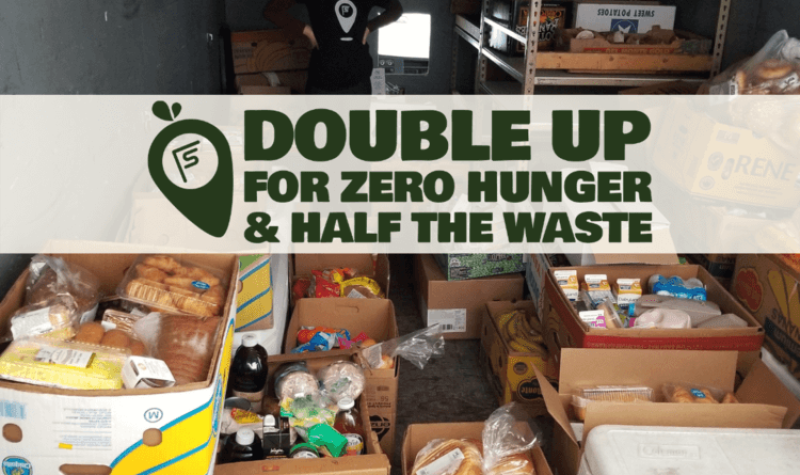Just Eat It: A Food Waste Story was the inspiration for Vancouver teacher David Schein to reduce food waste and feed the hungry. So in 2016, he began rescuing food from local grocers and with a group of volunteers, packed it into boxes of food for nine families.
By October 2017, the Food Stash Foundation became a registered charity and today it rescues over 70,000 lbs of food per month, redistributing it to more than 20 partner charities and 100 members who receive weekly food boxes. These efforts are even more vital as food insecurity has been rising steadily over the past number of years made worse by the COVID-19 pandemic.
Former Executive Director Julia Hunter says the food that is rescued would have otherwise been wasted for a variety of reasons including imperfect produce, best before date reached, day-old grain products or items that are not selling fast enough. Ensuring this food does not end up in landfills helps reduce the production of methane which is a greenhouse gas. Greenhouse gases are also emitted in the production and transportation of food. That's why Food Stash partners with Shift Delivery Coop to deliver its rescued food boxes to members using the Pedal to Plate program. In June 2021 alone, the 74,019 lbs of perishable food rescued saved 63,791 kg of CO2 emissions.
While making deliveries, Food Stash also hopes to build a greater understand of how food choices impact the environment and health, including education around the nutrition content of the rescued products and the benefits of using local, seasonal and organic food whenever possible. Hunter says she sees the value of these kinds of discussions when Food Stash members request less of one item and more of another to ensure nothing is wasted. “They are our food waste champions in the community” Hunter says proudly.
Hunter adds there will always be challenges in reducing food waste. That's why the efforts of the many partner suppliers like Whole Foods, Stong's and Sole Food Street Farms who willingly step up to support organizations like The Union Gospel Mission, Atira Women's Resource Society, The Urban Native Youth Association and others, plus committed Food Stash volunteers and staff show that “it takes a village to do this vital work and that everyone needs and deserves the right to access food.”


